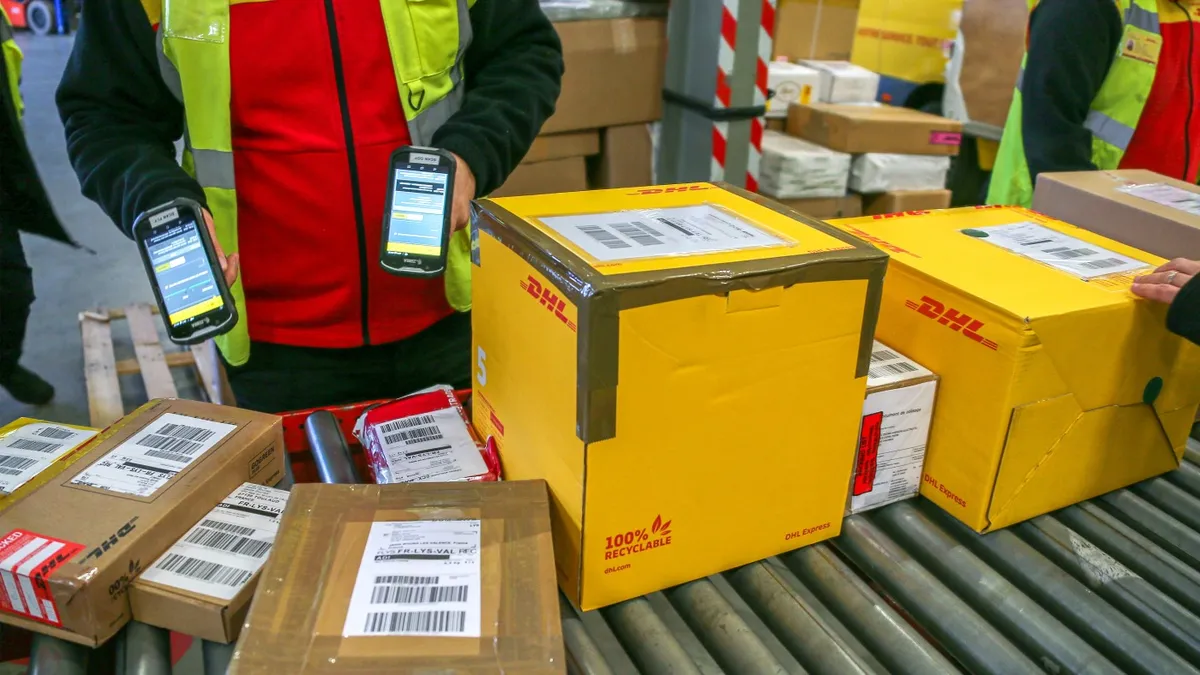
In a significant shift in international shipping logistics, many European parcel companies, including DHL, the Royal Mail, and the national post offices of France and Spain, are temporarily halting some shipments to the U.S.. This decision comes in response to newly implemented U.S. tariff policies that are set to take effect this week. While financial implications of these tariffs have been a focal point in trade discussions throughout the summer, the primary challenge faced by these companies lies not in monetary costs but in the complexities of new paperwork requirements.
A recent executive order from President Trump is set to abolish the de minimis rule, which previously allowed individual packages valued under $800 to enter the U.S. duty-free. This change is effective as of August 29. The de minimis rule, often labeled as a loophole, had already been revoked for shipments from China and Hong Kong, but now it will be suspended for all countries. It is important to note that letters remain unaffected by these new regulations. Additionally, gifts valued at less than $100—specifically those sent between individuals rather than businesses—will continue to be exempt from these tariffs.
The ramifications of these changes are particularly significant for packages originating from businesses, which will be heavily impacted by the removal of the de minimis exemption. As reported by NPR, the majority of packages shipped into the U.S. currently benefit from this exemption. The elimination of the de minimis rule will lead to increased costs for imported goods, but the primary reason for the pause in shipments is the uncertainty surrounding the new policies.
DHL Group has expressed concerns about unresolved key questions related to the new customs procedures. In a statement, they highlighted uncertainties regarding how customs duties will be collected in the future, what additional data will be required, and the methods of transmitting this data to U.S. Customs and Border Protection. Consequently, DHL Group has decided to suspend business shipments to the U.S. via Deutsche Post and DHL Parcel Germany. However, the more expensive DHL Express service will still be available for urgent shipments. DHL has not provided a specific timeline for when they expect to resume regular shipping operations but emphasized their commitment to restarting postal goods shipping to the U.S. as quickly as possible.
In addition to DHL, the French postal service La Poste has announced a suspension of goods shipments to the U.S., citing a very limited period to prepare for the new regulations and the need for further clarification on the policies. Similarly, Spain's Correos postal service has also paused shipments, indicating that the new rules and their rapid implementation are significantly disrupting international postal logistics.
The Royal Mail has predicted only a minor disruption of 1-2 days as it works to establish new services that will calculate and invoice companies for the incoming tariffs.
The White House previously described the de minimis treatment as a "catastrophic loophole" and a major scam, asserting that it not only diminishes tariff revenue but also facilitates the importation of illicit drugs. This is particularly concerning, as de minimis goods benefit from expedited processing, resulting in less oversight on imported items. There is bipartisan support for restricting or completely eliminating de minimis shipments; the Biden administration has shared similar concerns about potentially harmful products and unsafe items entering the country. Furthermore, several U.S. companies contend that the de minimis rule provides an unfair advantage to foreign manufacturers, allowing them an easier path to bypass tariffs.